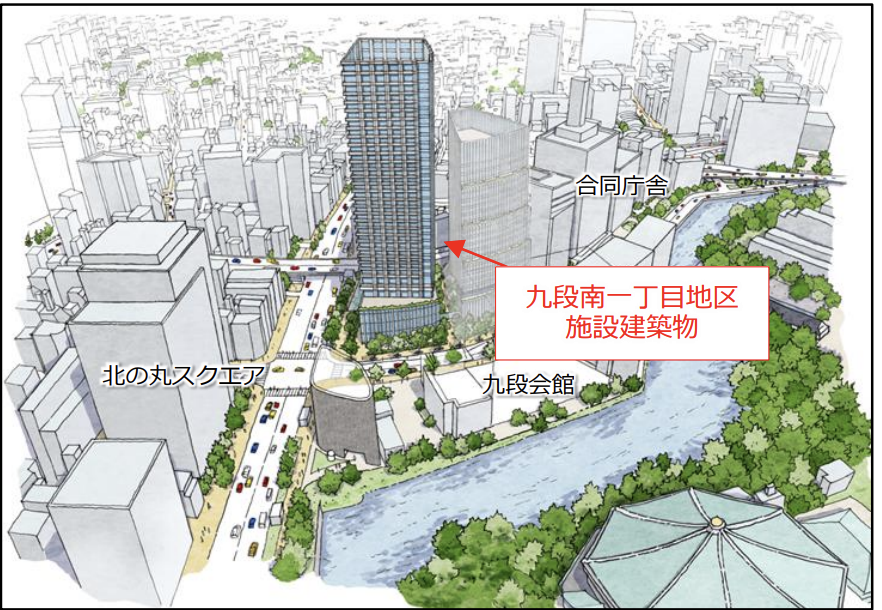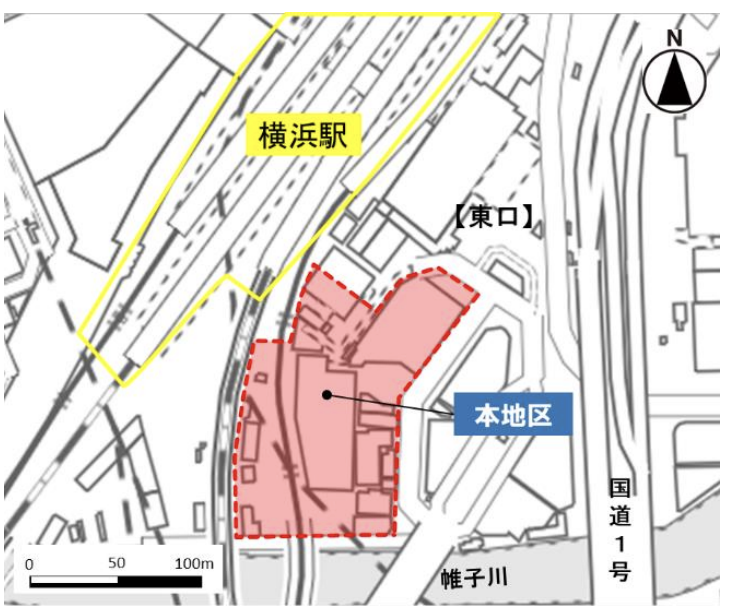In recent years, real estate investment has been attracting attention as a means of building assets for the future and securing funds for retirement, and the Japanese real estate investment market is showing a strong recovery after the Corona disaster, recording 3.85 trillion yen in 2024, a 41% increase over the previous year.
However, while real estate investment has attractive advantages, there are also disadvantages such as vacancy risk and repair costs. In this article, INA & Associates, Inc. explains the essential attractiveness of real estate investment and the key to success in an easy-to-understand manner for beginners.
If you are considering real estate investment or want to broaden your asset-building options, please read to the end.
Why Real Estate Investment is Attracting Attention and Market Outlook for 2025
Japan's Economic Revival and Booming Real Estate Investment Market
The year 2024 was a "year of revival" for the Japanese economy. The Nikkei Stock Average hit an all-time high of over 42,000 yen, breaking its bubble-era high for the first time in 34 years. This wave of economic recovery has also had a significant impact on the real estate investment market and is attracting growing interest from investors.
According to JLL's research, Japanese real estate investment reached 3.85 trillion yen at the end of the third quarter of 2024, an astounding 41% growth over the previous year. Furthermore, for the full year 2024, investment is expected to reach around 5 trillion yen, surpassing the pre-Corona figure for the full year 2019.
This market boom is not temporary. The number of foreign visitors to Japan is expected to exceed 35 million for the full year 2024, and consumption is expected to exceed 8 trillion yen. Foreign direct investment in Japan is also increasing, with the balance of inward direct investment topping 50 trillion yen, or 9% of GDP.
Real Estate Investment Market Forecast for 2025
In 2025, the real estate investment market is expected to see an increase in the share of office investment in particular, with offices accounting for the highest share of investment by sector at 37% in 2024, indicating a recovery in investor interest that had temporarily declined due to the Corona disaster.
Investment appetite by foreign investors is also showing signs of recovery, with the amount of assets under management (AUM) of Japan-specific funds beginning to increase again in the first quarter of 2024. This indicates that increased real estate sales by operating companies and rising rents against a backdrop of high prices are creating more investment opportunities that match the value-added opportunistic strategies that foreign investors are known for.
Nine Attractions and Benefits of Real Estate Investment
1. asset building effect through stable rental income
The most attractive feature of real estate investment is the stable rental income. Prices do not fluctuate greatly on a daily basis as in the case of stock investments, and you can expect a constant income for the duration of the rental contract.
A typical lease contract is renewed for two years, and the rent is fixed during that period. This makes monthly cash flow more predictable and allows for long-term asset-building planning. In addition, once the real estate investment loan is paid off, the monthly repayment burden is eliminated and almost all of the rental income can be kept on hand.
Current market yields are around 4-5% for studio apartments, 6-8% for newly built condominiums, and 4-5% for used condominiums. This is an attractive level compared to equity investments. 2.
2) Leverage Effect to Improve Investment Efficiency
In real estate investment, you can enjoy the leverage effect by using bank loans. Since you can purchase properties that are many times larger than your own funds, you can aim for a large return with a small amount of funds.
For example, if you purchase a 25 million yen property with 5 million yen of your own capital, you have leveraged yourself five times. Since the profit when the property value increases will also accrue on the entire investment principal, the rate of return on your own capital will be greatly increased.
However, while leverage can increase profits, it can also amplify losses, so careful financial planning and property selection are important. The key to success is to fully consider interest rate trends and repayment plans, and to use leverage to the extent that it is reasonable. 3.
3. maximizing net income through tax savings
Real estate investment has the great advantage of tax savings. Income earned from real estate investment (real estate income) is treated together with employment income as a total taxable income, so that if the income from real estate investment is negative, it can be offset against the surplus in employment income.
The tax savings tend to be particularly large in the first year of purchase, since initial expenses such as registration fees, real estate acquisition taxes, and brokerage commissions can be included. In addition, since the building portion of the property can be expensed annually as depreciation, the cash flow remains in the black, but becomes negative on the books, which may result in tax savings.
However, we do not recommend investing in real estate solely for the purpose of tax reduction. It is important to focus solely on profitability and view tax-saving effects as a side benefit. 4.
4. preservation of asset value through inflation hedge effect
The current Japanese economy has entered a period of moderate inflation after 30 lost years. In such an environment, holding assets in cash will diminish their real value.
However, as construction and land costs rise during times of inflation, real estate prices tend to rise in tandem. Real estate investment can be expected to have a risk hedging effect against this inflation. Similarly, it is less susceptible to deflation and is valuable as a stable asset.
In 2024, consumer price fluctuation (inflation) and wage growth rates are rising rapidly, recovering to levels prior to the lost 30 years. In this economic environment, real estate will play an important role as an inflation-resistant asset compared to cash and savings accounts.
5. passing on assets to family members through the life insurance effect
When using a real estate investment loan for real estate investment, you are basically required to purchase group credit life insurance (danshin). Group credit life insurance forgives the remaining balance of the loan in the event that the investor himself/herself dies or becomes severely disabled while repaying the loan.
In this case, the real estate remains debt-free and the survivors have two options. They can either sell the property for cash or keep it and receive ongoing rental income. In this way, real estate investment is an excellent asset-building tool that has a similar effect to life insurance, while at the same time being expected to be profitable. 6.
6. ease of financial planning and predictability
Compared to other investment products, real estate investment tends to make it easier to predict future income and expenses. Prices do not fluctuate as much on a daily basis as stock investments, and rental income is relatively stable, making it easy to predict monthly cash flow.
In addition, since necessary expenses at the time of property purchase can be easily ascertained in advance, annual income and expenditure calculations can be made in concrete terms. Since expenses such as loan repayment plans, management fees, reserve funds for repairs, and property taxes can be calculated almost accurately before purchase, it is possible to construct a long-term investment strategy.
7. effectiveness as an inheritance tax measure
Real estate investment is also effective as an inheritance tax measure. In the case of inheritance in cash, the value is assessed at face value, but in the case of real estate, the inheritance tax assessed value is calculated lower than the market value, so a reduction in inheritance taxes can be expected.
In particular, in the case of real estate for rent, the assessed value is further reduced because the property is assessed as "land with a house for rent" or "house for rent. This may reduce the inheritance tax burden even with the same asset value. 8.
8. investment method with less management hassle
Real estate investment is an investment technique that requires little management effort if an appropriate management company is selected. Even salaried workers with a day job can easily invest in real estate because they can outsource tenant solicitation, rent collection, building maintenance, and other tasks to a management company.
Another major advantage is that, unlike stock investments, there is no need to worry about daily price fluctuations, and asset building can be undertaken from a long-term perspective. 9.
(9) Sense of security as a real asset
Because real estate is a real asset, there is a sense of security that differs from that of financial instruments such as stocks and bonds. It is less susceptible to corporate bankruptcy risk or turmoil in the financial system, and can be expected to provide long-term asset protection.
Comparative Data by Type of Real Estate Investment
The following table summarizes the characteristics of each major type of real estate investment.
| Investment Type | Initial Investment | Expected Yield | Management effort | Liquidity | Suitable for beginners |
|---|---|---|---|---|---|
| Condominiums | 10 million yen and up | 4-6% of total | Low | Medium | ★★★★☆ |
| Condominiums | 50 million yen and up | 6-8% (6-8%) | Medium | Low | Low |
| Apartment Building | 30 million yen and up | 7-10% (in the case of a single building) | Medium | Low | Low |
| Detached house investment | From 15 million yen | 6-8% (6-8%) | Medium | Medium | ★ ★ ★ ★ ★ ★ ★ ★ ★ ★ ★ ★ ★ ★ ★ ★ ★ ★ ★ ★ ★ ★ ★ ★ ★ ★ ★ ★ ★ |
| REIT | From 100,000 yen | 3-4% No | No | High | ★★★★★ |
Yield Market Data by Area
| Area | Studio Yield | Family Yield | Characteristics |
|---|---|---|---|
| Tokyo 23 Wards | 4.0-4.5% (4.5-5.0%) | 4.5-5.0% (Tokyo's 23 wards) | Emphasis on stability, high liquidity |
| Osaka City | 4.5-5.5% Osaka City | 5.0-6.0% | Balanced, growth potential |
| Nagoya City | 5.0-6.0% Nagoya City | 5.5-6.5% Nagoya City | Manufacturing cluster, stable demand |
| Fukuoka City | 5.5-6.5% Fukuoka City | 6.0-7.0% Population growth, high yield | Population growth, high yield |
| Regional cities | 7.0-10.0 | 8.0-12.0% | High yield, high risk |
Real Estate Investment Risks and Countermeasures
While real estate investment has attractive advantages, there are also risks that must be understood. With proper risk management, it is possible to earn a stable income.
Major Risks and Countermeasures
1. vacancy risk
This is the risk of not earning rental income when vacancies occur. To counter this risk, it is important to select a property in a good location, set an appropriate rent, and maintain the property value through regular maintenance. Risk can also be mitigated by diversifying investments in multiple properties.
2) Risk of Rent Arrears
Rent delinquency by tenants may occur. Effective countermeasures include stricter tenant screening, the use of a rent guarantee company, and the establishment of an appropriate reminder system by the management company.
3. risk of rising interest rates
If a loan is taken out at a floating interest rate, there is a risk that the repayment burden will increase due to a rise in interest rates. It is important to select a fixed interest rate or develop an income/expenditure plan that anticipates interest rate rises.
4. disaster risk
Natural disasters such as earthquakes and fires may cause damage to the property. It is important to purchase fire and earthquake insurance, and to select a property with high earthquake resistance.
5. liquidity risk
Real estate is less liquid than stocks , and it may take time to sell. It is important to invest with surplus funds and consider exit strategies in advance.
Five points for successful real estate investment
1. place the highest priority on location
It is no exaggeration to say that "location is everything" in real estate investment. The key to success is to select a location that can be expected to be in demand over the long term, based on a comprehensive assessment of factors such as distance from train stations, the surrounding environment, and future development plans.
In Japan, where the population is declining, demand tends to be concentrated in highly convenient areas, especially in urban areas. We recommend choosing an area that is within a 10-minute walk from the nearest station, has access to multiple train lines, and is well served by commercial and medical facilities.
2. purchase at an appropriate property price
Purchasing at a price higher than the market price will greatly affect your subsequent profitability. It is important to collect information from multiple real estate companies and determine an appropriate price by referring to examples of transactions in the surrounding area.
It is also important to judge not only by the surface yield, but also by the actual yield after deducting management fees, reserve for repairs, taxes, etc.
3) Selection of a Reliable Management Company
The quality of a management company greatly affects the success or failure of a real estate investment. Selecting a management company with a high occupancy rate, quick response capability, and a transparent reporting system will ensure stable operations.
Select a company based not only on low management fees, but also on a comprehensive evaluation of service content and track record.
4. investment planning from a long-term perspective
Real estate investment is not about short-term profit, but about long-term asset building, so it is important to have an investment plan that looks 10 to 20 years into the future and not be swayed by temporary fluctuations in the market.
Develop a comprehensive plan that includes a loan repayment plan, property repair plan, and exit strategy.
5. continuous learning and information gathering
The real estate market is constantly changing, and continuous learning and information gathering is essential to success. It is important to keep up to date on tax code changes, market trends, and new investment techniques.
Points to keep in mind when a beginner starts investing in real estate
Importance of Financial Planning
When starting a real estate investment, it is important to secure sufficient personal funds. In addition to a down payment of 10-20% of the property price, it is recommended that you prepare other expenses (7-10% of the property price) and working capital (about 6 months' worth of repayments).
Do not be misled by sales talk.
It is important to gather information on your own and make a calm decision without relying on what the sales representative of the real estate investment company tells you. In particular, be wary of sales talks that emphasize "tax-saving effects" and "high yields.
Start small
For beginners, we recommend starting with a condominium investment. This is a good way to learn the basics of real estate investment because the investment amount is relatively small and the management effort is reduced.
Conclusion
Real estate investment is an attractive investment method that can provide stable income and asset building if approached with the proper knowledge and strategy. 2025 market conditions offer favorable investment opportunities along with the recovery of the Japanese economy, especially for office investments and the expected increase in the number of foreign investors entering the market.
However, for success, it is essential to choose the right location, purchase at the right price, select a reliable management company, and plan investments from a long-term perspective. It is also important to understand potential risks such as vacancy risk and interest rate fluctuation risk and take appropriate countermeasures.
INA&Associates Inc. offers the best real estate investment strategy for each individual client's situation.
If you are interested in real estate investment, please contact us for a consultation. Our experienced and professional staff will help you realize your asset-building goals.
Frequently Asked Questions
Q1: How much personal funds do I need to start real estate investment?
A1. Generally, a down payment of 10-20% of the property price, various expenses (7-10% of the property price), and working capital (about 6 months' worth of repayment) are required. In the case of condominium unit investment, you can start with a total of about 3-5 million yen in personal funds. However, conditions vary by property and financial institution, so we recommend that you check the details beforehand.
Q2: What is the ideal level of yield for real estate investment?
A2: It depends on the area and property type, but the market rate for a studio apartment in Tokyo's 23 wards is 4.0-4.5%, and in regional cities it is 7.0-10.0%. However, it is important to judge not only by the surface yield, but also by the real yield after deducting management fees and taxes. It is also important to understand that properties with excessively high yields carry a certain amount of risk.
Q3: Can a salaried worker also invest in real estate?
A3: Yes, it is possible. In fact, salaried workers are suitable for real estate investment because they have a stable income and can easily obtain loans from financial institutions. If you outsource the work to a management company, you can invest without interfering with your main job. However, procedures such as filing tax returns are required.
Q4: What are the key points to avoid failure in real estate investment?
A4: The most important thing is to choose the right location. The key to success is to choose an area that is conveniently located near a station and where future demand can be expected. Also important are purchasing at a fair price, selecting a reliable management company, securing sufficient personal funds, and planning the investment from a long-term perspective.
Q5: Are there any tax incentives for real estate investment?
A5. There are multiple tax incentives for real estate investment. These include tax savings from depreciation and amortization, profit and loss sharing between real estate income and employment income, and reduced inheritance tax assessments. However, since the taxation system is subject to change, we recommend that you check the latest information and consult a tax accountant or other specialist.

Daisuke Inazawa
Representative Director of INA&Associates Inc. Based in Osaka, Tokyo, and Kanagawa, he is engaged in real estate sales, leasing, and management. He provides services based on his extensive experience in the real estate industry. Based on the philosophy that “human resources are a company's most important asset,” he places great importance on human resource development. He continues to take on the challenge of creating sustainable corporate value.

.png)













